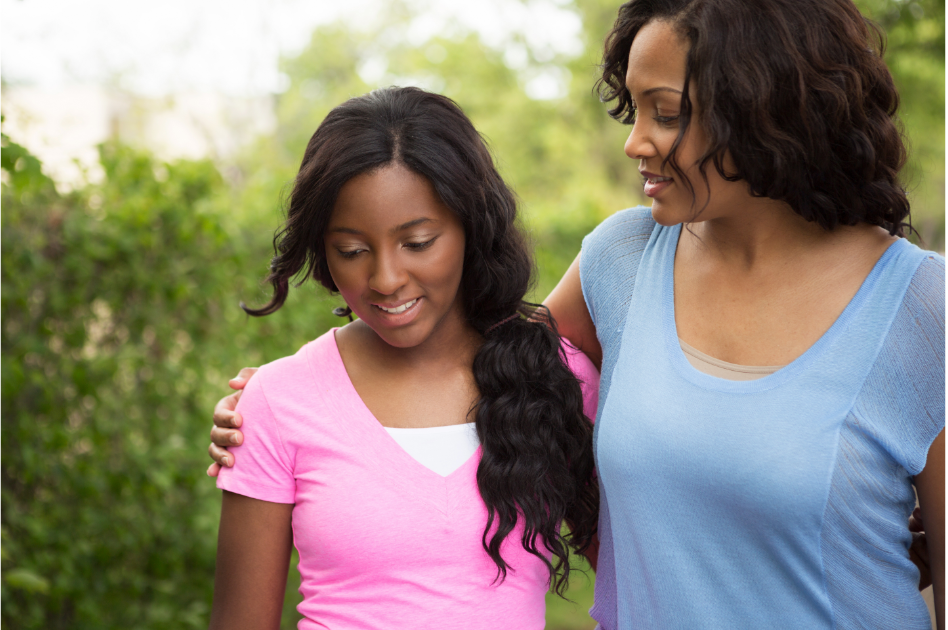Mom shows 9-year-old how to leave uncomfortable conversations and it's advice everyone should hear
You don't have to let someone make you uncomfortable.
A young girl with her hand over her mouth.
Few things are more uncomfortable than sitting like a deer in the headlights while someone pushes you into an incredibly awkward conversation. Whether it’s a TMI (too much information) conversation or they want to talk about politics or religion, it’s hard to tell someone that a subject is off-limits.
However, in a viral Instagram post, Charisse Sims makes an essential point about these awkward situations: it will be uncomfortable whether you tell them to change the subject or if you have to sit through the conversation. So, it’s better to take the option that’s less harmful to you. Sims is a mother of six and the host of the Parenting for the Culture podcast. She is also an awarded Educator by PBS and PBS Kids and founder of The Sims Library of Poetry.
How do you leave uncomfortable conversations?
In an Instagram reel from last spring, Sims shares advice with her then nine-year-old daughter, who she could tell felt very awkward about a recent conversation. “Immediately, when she started having that conversation, I could see on your face that you felt uncomfortable,” Sims told her daughter in the video. “When you have that feeling, your response to them should be, ‘I feel uncomfortable in this conversation. Let's talk about something else.”
Sims then asked her daughter to repeat the phrase a few times to burn it into her brain for when she needed it. Her daughter then admitted that telling someone to change the conversation would be difficult. Most people probably agree that telling people you’d like to change the subject is uncomfortable.
However, Sims makes a great point: you will be uncomfortable both ways, so choose the one that best suits you.
“Which one is a longer discomfort, taking 10 seconds to say, ‘I feel uncomfortable in this conversation. Can we talk about something else?” Sims asked. “Or, sitting in a 20- to 30-minute conversation that you feel uncomfortable in?”

“It is uncomfortable telling people stop. It is uncomfortable being like, ‘I don't really like what you're doing,’ because you're worried you're going to hurt their feelings, and you want them to like you,” Sims continued. “But it's also uncomfortable to sit there and be uncomfortable for a long time. So choose your discomfort, and choose the one that's going to help you, not hurt you.”
Candace Smith, an etiquette expert, says it’s also helpful if you have another topic on deck that the person may be interested in to make the transition smoother for both parties. “When you think it’s time to let the other person know you will change the subject, be positive, and smile. Keep your eye contact warm and direct,” she advises. She then gives an example: “I’m going to change our subject here. Let’s talk about something cool like the Marvel movie!”

Sims' advice is important because it’s something that all of us, adults included, can use next time we are forced into an uncomfortable situation. Her advice is a great tool for making sound decisions when we feel awkward and unable to think on our feet. “I wish when I was growing up, I was taught more how to navigate tricky situations rather than just being told to stay out of them,” Sims wrote in her post. “As simple as that is, It’s not always that easy. Our children need more support and actual practice navigating these awkward situations.”
This article originally appeared last year. it has been updated.

